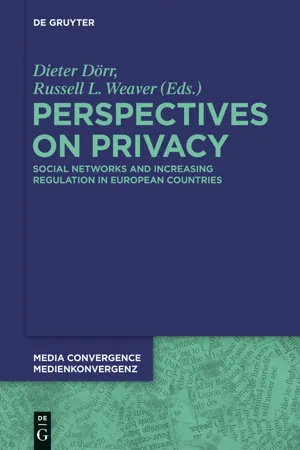A. Introduction
The principle of open justice is a fundamental feature of the administration of justice in Australia. In principle, derogations from open justice are tightly controlled and usually only permitted on the grounds of necessity. Mere embarrassment or distress at the public revelation of personal or private material has not been recognised as a sufficient basis for departing from the principle of open justice. Thus, by litigating, parties and their witnesses allow personal or private aspects of their lives to be publicly scrutinised.
Over the last decade, there has been a growing concern about the incidence of suppression orders being granted by Australian courts in particular jurisdictions. In response to the seeming disconformitiy of approach across Australian jurisdictions, the Standing Committee of Attorneys-General developed a proposal for the harmonisation of legislation governing the grant of suppression and non-publication orders. Thus far, the model laws that developed from this process, the Court Suppression and Non-Publication Orders Bill 2010, have only been adopted for New South Wales courts and the Federal Court of Australia and are proposed to be adopted in Victoria. The grant of suppression and non-publication orders has continued to increase in the two largest jurisdictions in Australia, New South Wales and Victoria. Indeed, the introduction of the Court Suppression and Non-Publication Orders Act 2010 (NSW) (“CSPO Act”) led to an exponential increase in applications and orders in that jurisdiction.
Amongst the recent spate of applications in New South Wales and Victoria, there have been a number of applications by high-profile Australians seeking suppression or non-publication orders in order to limit media reporting of their disputes. The litigation involved variously disputes over family trusts, the breakdown of a de facto relationship and a claim on a deceased estate. The claims therefore clearly entailed the public ventilation of personal or private material. These applications were largely unsuccessful. However, they draw attention to the tension between open justice and privacy.
The issue of privacy is one that has been of sustained interest to law reform bodies and legislators in Australia. Over the last five years, three law reform commissions have recommended the introduction of a statutory cause of action for invasion of privacy and the Federal Government has conducted a consultation on the issue. Although there is still no general, direct right to privacy under Australian law, it has always been an important underlying value and one that now is pressing a claim for greater legal protection.
This chapter examines a recent series of cases in which suppression or non-publication orders have been sought by high-profile litigants in disputes concerning their private, personal or family affairs. In doing so, it questions whether the principle of open justice is insufficiently respectful of claims to privacy. It also examines recent legislative and procedural developments in New South Wales, which demonstrate an increased concern for the privacy of parties and witnesses. These reforms suggest that the principle of open justice does not necessarily require the gratuitous inclusion of private personal information in publicly available judgments.
B. The principle of open justice
The principle of open justice means that court proceedings are presumptively conducted in public. Courtrooms are physically open to the public; the identity of litigants and witnesses are publicly known. In reality, few members of the public physically attend court proceedings, instead relying on media outlets to act as ‘the eyes and ears of the public.’ The ability of media outlets to provide fair and accurate reports of court proceedings conducted in public is therefore an important consequence of the principle of open justice.
There are a number of reasons for the importance of open justice. It aims to ensure not only that justice is done but is seen to be done, thereby enhancing public confidence in the administration of justice and promotes the values of the rule of law. Open justice seeks to ensure that judges are accountable and act with integrity and propriety and that witnesses tell the truth. Publicity acts as a check on arbitrary power. Indeed, it is an essential attribute of judicial, as opposed to executive, power.
In Australia, open justice is a fundamental principle of the common law. There is arguably a constitutional basis for open justice in relation to the exercise of judicial power under Ch III of the Australian Constitution. In those jurisdictions in which there is a comprehensive statutory protection of human rights, the right to a fair trial is protected and includes a presumption of a public hearing. Privacy is also protected under these statutes and is balanced with the right to a public hearing.
At common law, the principle of open justice is not absolute. There are permissible departures from it, based on the strict test of necessity. These have developed into recognised categories in which a court is more disposed to exercise its power, as part of its inherent jurisdiction, to depart from the principle of open justice. The categories include proceedings involving wards of State and mentally ill people, blackmail and extortion cases, where the disclosure of information would affect its commercial value or confidential quality, informers, and to protect matters of national security. The categories for which it is established that there may be a departure from the principle of open justice are “few and strictly defined” but they are not absolute and may be extended to new circumstances by analogical reasoning. However, courts are loath to expand the field. Significantly, at common law, it has never been deemed necessary to derogate from the principle ...




